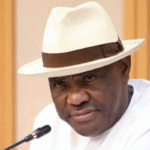President Tinubu Has Signed It: Tax Reform Bill Is Finally Law.

By
Arabinrin Aderonke Atoyebi
At last, it has happened. President Bola Ahmed Tinubu has officially signed the Tax Reform Bills into law today, bringing an end to several months of discussions, reviews, and policy work. This is not just another item checked off a list. It is one of the most transformative economic decisions Nigeria has seen in years. For those who understand how broken the old tax system has been, how it confused businesses, frustrated workers, and punished small traders, these new laws come as a relief.
The Tax Reform Bills signed into law include four major pieces of legislation. The Nigeria Tax Bill brings together many existing tax laws into one simplified and accessible document, making compliance easier for people and businesses. The Nigeria Tax Administration Bill introduces standard, more efficient procedures for tax collection across all levels of government, with a focus on digital systems and transparency. The Nigeria Revenue Service (Establishment) Bill replaces the former FIRS with a stronger, more independent body now called the Nigeria Revenue Service with a wider mandate that includes both tax and non-tax revenues. The last one, the Joint Revenue Board (Establishment) Bill creates a platform for federal and state cooperation and introduces protective mechanisms like the Tax Appeal Tribunal and a Tax Ombudsman to handle complaints and disputes. Together, these laws lay the groundwork for a more accountable and functional tax system.
The change to VAT distribution is one of the most practical parts of the Tax Reform Bills. For years, states contributed to VAT collection but had no direct benefit tied to their efforts. That has now changed. Under the new formula, each state will keep 30 percent of the VAT it generates. Another 50 percent will be shared equally among all states, while the final 20 percent is allocated based on population. This means states with strong commercial activity will receive a more accurate return. It also gives every state a reason to grow its local economy, support traders and service providers, and take tax collection more seriously.
Another provision in the new law is the exemption of small businesses from company income tax. Any business earning below ₦50 million annually will no longer be taxed under that category. This is a good one, especially in a country like ours where micro and small enterprises make up a large part of the economy. By easing this pressure, the law encourages more of these businesses to register formally, access financial services, and expand steadily without fear of disruption.
The Tax Reform Bill, for once, speaks the language people understand. People just want to know what they are paying, why they are paying it, and that it won’t change tomorrow without warning.
What this means for Nigerians is a more stable and predictable system, one where people can focus on earning a living without second-guessing government demands. For the self-employed and those doing small scale businesses, it brings relief from the constant anxiety of multiple levies and unclear charges. For salary earners, especially those at the lower end, it protects more of their income and removes deductions that once went unquestioned. It gives room for young people building digital businesses, women running home-based enterprises, and artisans trying to grow their work to operate more confidently. This reform also strengthens the link between tax and development by creating systems that can actually be tracked and understood. When revenue is collected properly and shared appropriately, it becomes easier to hold leaders accountable. Over time, this helps restore trust, not just in tax, but in governance itself.
This one sweet us. There is this kind of joy that comes when things are finally done right. Dr. Zacch Adedeji, Executive Chairman, Federal Inland Revenue Service (FIRS), under the Renewed Hope Administration, put his head down, did the work, and it’s showing now. These Tax Reform Bills are not just for the government, they are for the citizens. For once, the country feels like it is thinking straight. Honestly, at this point, it just makes sense to join the team that is delivering. Because let’s say it as it is, this might just be Nigeria’s best government yet.
_Arabinrin Aderonke Atoyebi is the technical assistant on broadcast media to the executive chairman of the Federal Inland Revenue Service_








